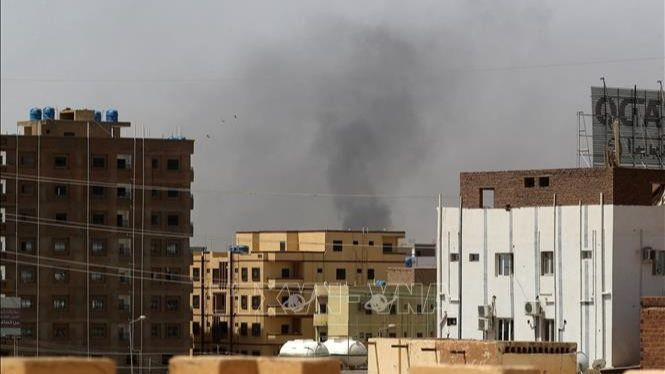According to a joint statement of the US and Saudi Arabia, the warring factions in Sudan signed a humanitarian ceasefire agreement in the Saudi city of Jeddah, which took effect on May 22 and lasted for seven days. While many previous ceasefire agreements were violated, a mechanism with the participation of the US, Saudi Arabia and the international community, will monitor compliance with this agreement.
The humanitarian situation in Sudan is particularly dire. According to a report by the World Health Organisation (WHO), more than 700 people have been killed and thousands injured, as the conflict enters its sixth week in Sudan. The United Nations High Commissioner for Refugees (UNHCR) said more than one million people have been displaced from their homes, of which more than 200,000 people have fled to neighbouring countries.
The United Nations has called for nearly 2.6 billion USD to support those affected by the fighting in Sudan, as some 25 million people, more than half of the population in the country, require humanitarian assistance and protection.
This is the largest number of people in need ever recorded in Sudan and the figure of nearly 2.6 billion USD is also the largest amount called for humanitarian assistance, to Sudan. The United Nations estimates more than 470 million USD is needed to assist Sudanese who have fled the country.
The situation in recent weeks has worsened as aid organisations have been unable to assist in Khartoum, due to the lack of security guarantees and safe movement for humanitarian workers. Looting occurred at World Food Programme (WFP) warehouses, banks, embassies, aid agencies and even churches.
On May 20, the Cooperation Council for the Arab States of the Gulf (GCC) condemned the attack and vandalism of the Qatar Embassy in Khartoum. Earlier, the embassies of Jordan, Saudi Arabia, Kuwait, Oman and Turkey were also attacked.
To seek a peaceful solution to the conflict in Sudan, the Arab League (AL) established a Contact Committee on Sudan. The AL repeatedly urges the adversaries to respect humanitarian principles in conflict, while emphasising the importance of dealing with the crisis as an internal matter and opposes any external intervention.
The United Nations has reported a significant number of armed men entering Sudan from countries in the Sahel region. Meanwhile, the Sudanese army chief accused the opposition forces of recruiting fighters from surrounding countries such as Chad, Central African Republic and Niger.
Although this ceasefire in Sudan only lasts for a week, it is considered particularly important in facilitating humanitarian relief, restoring essential services, and evacuating people out of combat zones. The international community expressed hope that this ceasefire will be observed by the warring factions and considered for extension, amid the dire current humanitarian situation.
United Nations Secretary-General Antonio Guterres warned, that the large-scale and protracted war in Sudan if continued, could ignite a “detonator” across borders because all seven countries bordering Sudan have both experienced conflicts or severe instability in the past 10 years. Guterres stressed that the conflict in Sudan will not, and must not, be resolved on the battlefield, with the bodies of Sudan’s children, women and men.
Therefore, the three immediate priorities of the United Nations and its partners are to promote a sustainable ceasefire, with a strong monitoring mechanism, bring the parties back to political negotiations, and support the people to overcome difficulties. The United Nations will work tirelessly to end the violence and restore hope for a better future in Sudan, Guterres said.
















